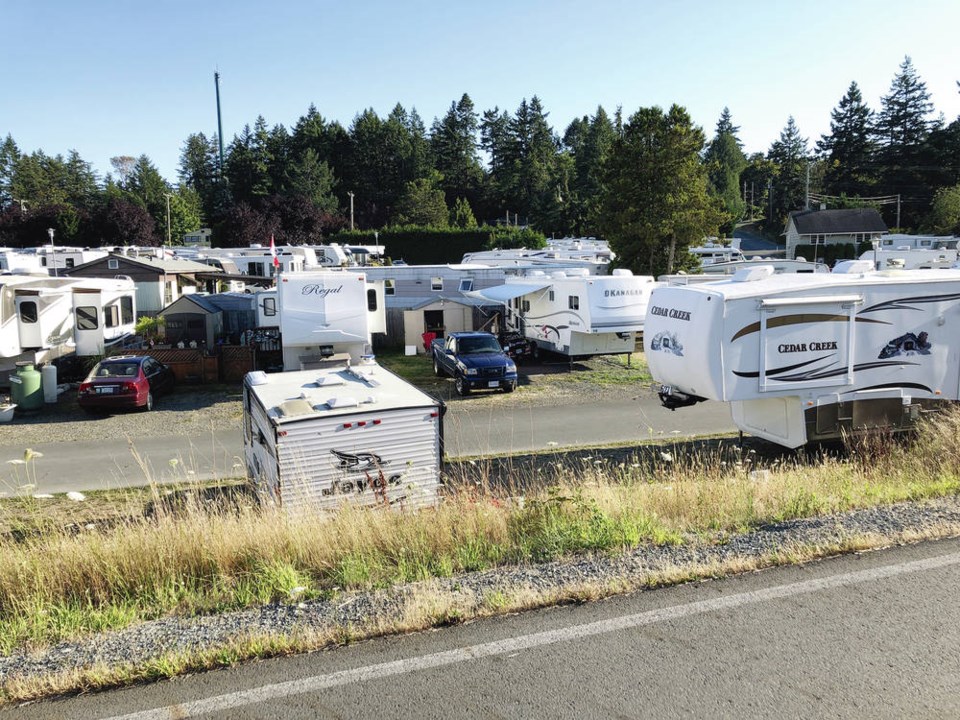We understand and empathize with the recent concerns raised about Vancouver Island being a magnet for Canadian snowbirds this winter.
It is a balancing act. There seems to be a false notion that the Tourism Vancouver Island and British Columbia Hotel Association campaign was created to invite more travellers to the island.
It is, in fact, about educating the visitors already choosing to come.
As B.C. and Vancouver Island residents, we understand these concerns. We are in a pandemic. We have friends and families here. We don’t want to jeopardize anyone’s health, including our own.
Canadian snowbirds coming to Vancouver Island have supported the region’s tourism industry for decades.
As the Nov. 5 editorial “We shouldn’t invite tourists to our island during a pandemic” pointed out, this year the demand is stronger than ever, with many Vancouver Island tourism operators including campgrounds and RV parks reporting they are fully reserved this winter.
In response to this demand, which we anticipate will continue to grow, Tourism Vancouver Island and the British Columbia Hotel Association partnered in creating a resource guide to educate visitors on community safety protocols and to encourage visitors to plan ahead.
Contrary to the pervasive narrative that COVID-19 is intimately linked to tourism, recent months have proven that localized irresponsible behaviour, more than anything else, has been the driving force in the spread of the virus.
Provincial health officer Dr. Bonnie Henry has routinely directed us to this fact, pointing to larger social gatherings, improper social distancing, and poor hand hygiene as main causes of the spread.
Since we entered phase three in June — with no health orders from either the provincial or federal governments to stop Canadians from travelling to Vancouver Island — the region safely welcomed guests from all over Canada. Some accommodators are reporting occupancy to be up almost 40 per cent compared to past shoulder seasons.
Even so, our case numbers remain low, a feat we can credit to our residents, and also to our tourism operators, who were quick to take extraordinary safety measures in an effort to protect the health and safety of guests, employees, and communities.
With the guidance of the British Columbia Hotel Association, accommodators implemented WorkSafeBC-approved COVID‑19 safety plans, in line with all public health orders.
Hotel operators communicate safety protocols in advance of guest arrival. Visitors are strictly instructed not to travel should they be experiencing any symptoms related to COVID-19. They must adhere to this and other protocols employed by the property, including social distancing, mask use, guest limit, and contactless check-in.
Protocols such as these differ across businesses, making it imperative for visitors to plan ahead and use our resource guide, practising mindful travel.
These efforts have contributed to both Victoria and Vancouver Island being granted use of the World Travel and Tourism Council’s Safe Travels Stamp – allowing travellers to confidently recognize destinations and tourism businesses around the world which have adopted globally standardized health and hygiene protocols.
Through the campaign, we are also working to promote the dispersion of visitors. With a number of popular tourist spots across the island, our goal is to ensure these communities do not become overwhelmed with visitors. It is also our aim to see operators in other areas of the region serve this visitor demand, meeting their significant need for winter business in order to survive.
Despite the pockets of thriving tourism on the island, we must not forget that this is a dire time for our region’s tourism sector. The visitor economy typically generates $3.5 billion and supports 70,000 jobs. When this sector is hurting, our communities all feel the pain.
Islanders who work in tourism are your friends and neighbours, and are struggling to keep their jobs, their businesses open and their families supported.
This is a desperate time as we struggle to survive the long, challenging off-season — an off-season that may be slightly offset by tourists who are already planning on visiting the island.
One of Tourism Vancouver Island’s guiding principles is to develop a sustainable visitor economy that balances the health of our natural systems, the vibrancy of our communities and the prosperity of our businesses. With the support of partners like the British Columbia Hotel Association, we will continue to move forward, educating our visitors and keeping the safety of everyone in our community a top priority.
The resource guide is at vancouverisland.travel/snowbirds/ — scroll down to see the safety tip messages.
Anthony Everett is president and CEO of Tourism Vancouver Island; Ingrid Jarrett is president and CEO of the British Columbia Hotel Association.



